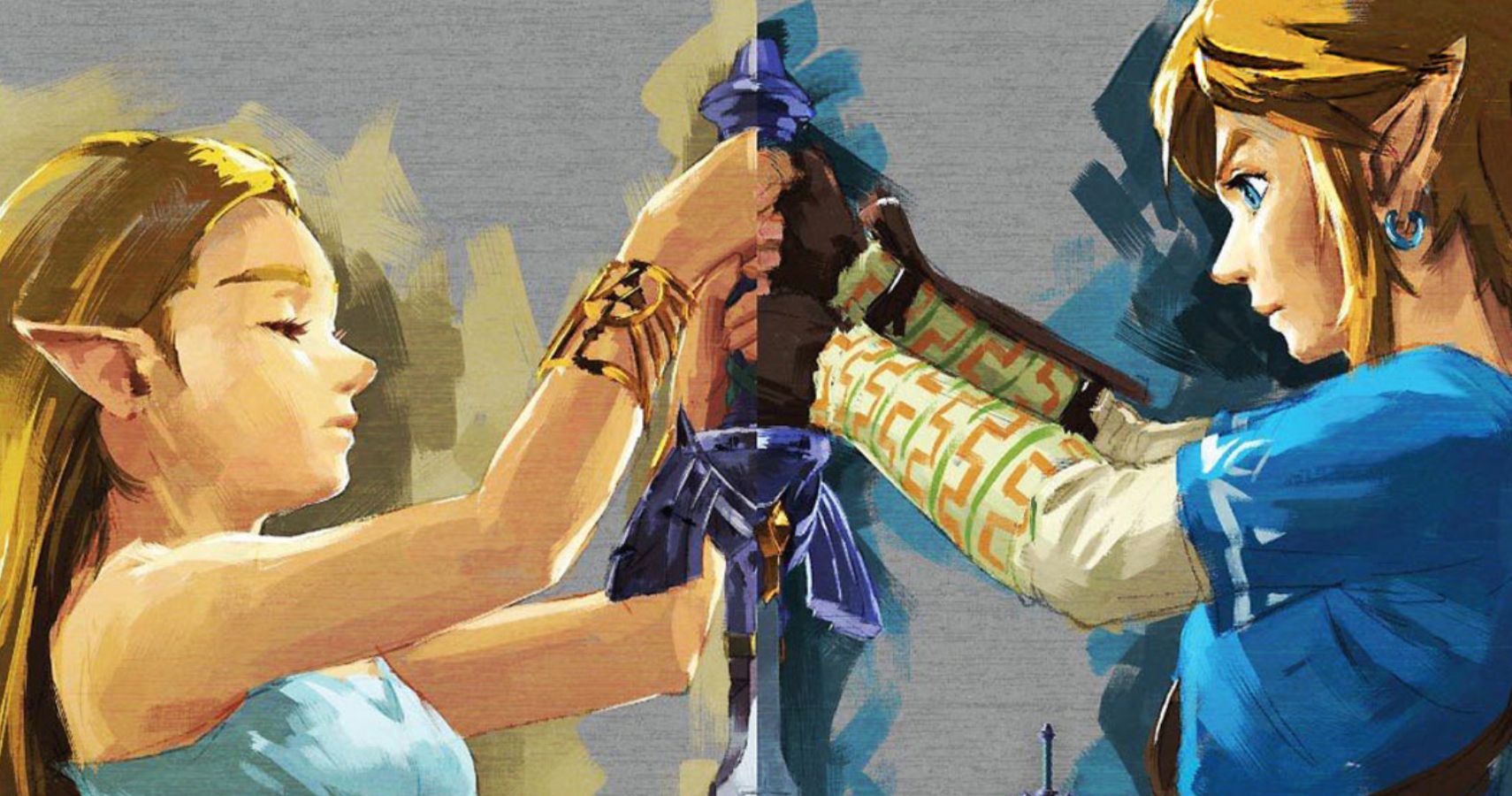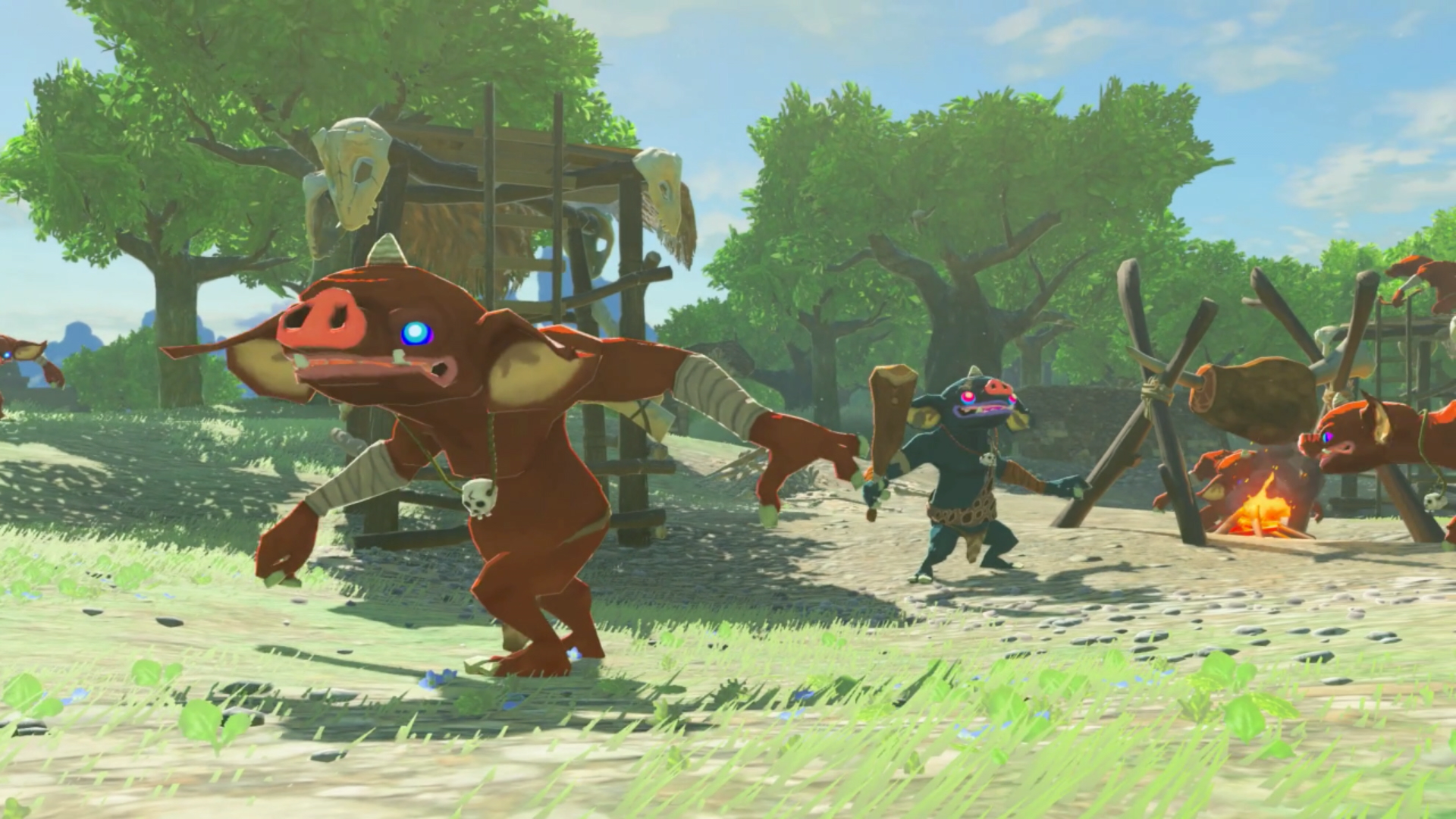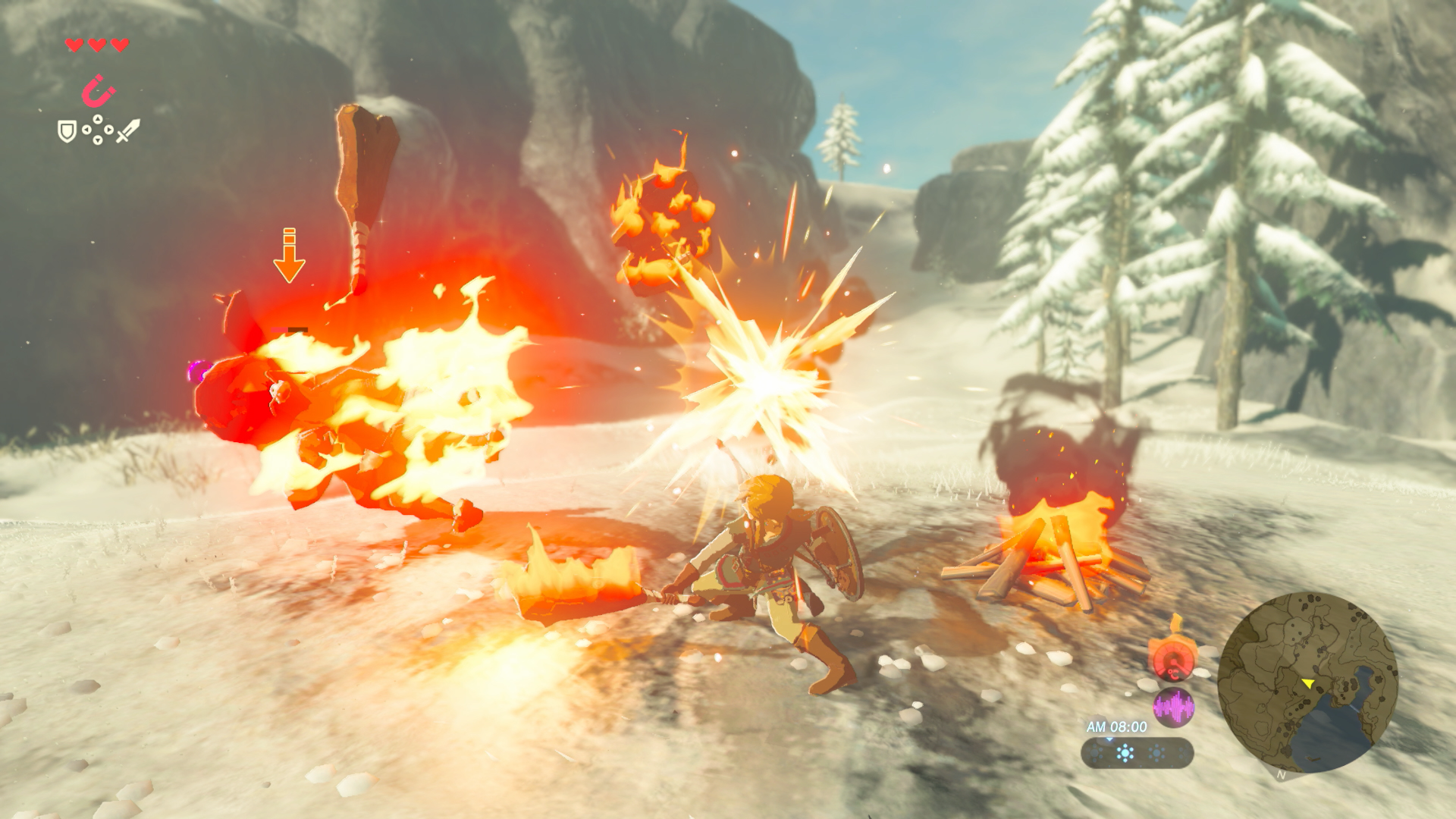Nintendo is a company that values, above all, mechanics. Their games live and die by just how well they sell on you on an individual gameplay element, and how well that element fits a game. In fact, much of their development philosophy is built around designing a mechanic first, then seeing what series that element fits. Ultimately, this approach is a savvy way to cultivate unique ideas before trying to bend them around IPs.
Take, for instance, the idea of a cyclical weapon degradation system. Picture a mechanic where players are given terrible weapons to start - swords, axes, and spears that break after three hits. However, the player is given almost immediate access to a collection of renewable abilities. You can't kill enemies as easily with these, but they're enough to get you out of most scraps. Over time, you learn to both master these abilities and to ration each new weapon wisely - organically swapping between each mechanic on the fly.
By any metric, this a good system. Your more reliable weapons are scarce and fickle, and your renewable magic is there as a fallback. Over time, you learn what weapons do what, how to maximize their potential before they break, and the best ways to use your environment to defeat enemies. It's a cycle - and not a particularly complicated one.
Yet when this mechanic was applied to the flagship Zelda franchise, it seemed to break the collective minds of critics, franchise fans, and casual players alike. 2017's Breath of the Wild was undoubtedly a critical and commercial darling, but in the years since its release, there's been much debate as to whether or not the game worked because of its hallmark weapon degradation, or in spite of it.
Detractors tend to point towards a relatively compact argument: it's not fun. It's not "fun" to find a cool new weapon, use it a few times, then watch it shatter before your eyes. It's not "fun" that you have to recharge the Master Sword after you use it for a while. It's not "fun" to never have a permanent, reliable shield to protect yourself with. It makes exploration difficult, combat scary, and every single enemy encounter a potential death.
That's not "fun" - that's frustrating.
The thing is, I think this claim does a great disservice to the very idea of fun. I think arguing that Breath of the Wild isn't "fun" because of its weapon degradation is not only a gross oversimplification of what "fun" is, but a telltale sign that your idea of it relies on your being empowered. If you feel powerful, you're having a good time; if you don't, then you don't get to feel like the "Hero of Hyrule," and therefore, you're not having a good time.
But this idea is, in and of itself, a fallacy - and a betrayal of the core conceit of the game, at that.
First off, many games trade in being deliberately "un-fun." Many of the best survival horror games and JRPGs utilize tools to disempower players, from DPS checks to limited save slots to scarce resources. All of these things can be frustrating, but they force you to be smart in how you play. In the first few Resident Evil games, for example, your saves are restricted to a consumable item. If you use them too often, and you can't find more, too bad - you can't save. The game, then, becomes a delicate and careful balancing act of item preservation, reflected organically in the mechanics. While "unfun," it ultimate acts in service of the game's core design philosophy - one that trades in desperate survival against overwhelming odds.
This dovetails with my second point. Let's say that you don't buy the argument that Breath of the Wild was built around this mechanic, and that it was implemented solely to shake up the Zelda franchise. If that were the case, it's also a resounding success. This particular entry of the game takes place in a magical post-apocalypse, where society as many Hyrulians knew it has collapsed, and several cultures are doing their best to survive with what they have left. That being the case, the idea of weapon degradation reflects that struggle. You have to be precious with what resources you find, and always weigh your options when it comes to using them.
"But Bella," you might ask, "why can I only carry a certain amount of weapons, but there's no limit on resources? Your argument's falling apart!" See, it can be argued that there being a limit on weapons, but not on crafting or cooking resources, proves my point. Breath of the Wild is a game built primarily on using what's around you to propel yourself in a forward trajectory. It encourages you to mine the earth, to pick every apple, to crack open every rock in order to survive. (God, kind of a colonialist conceit, isn't it?)
This kind of holistic approach, in which the earth constantly provides for the player, fits a franchise birthed from a man who got most of his ideas from playing outside as a child.
That approach stands in contrast to the weapons, where the only regular, reliable way to get them is to steal from enemies - something you're not forced to do, I might add. Nobody's making you kill every Bokoblin. Nobody's making you stockpile weapons. Nobody's making you do shit. You're choosing to do all those things - something the game reminds you of when it respawns every single enemy you kill in cycles. The only way to truly purge Hyrule of evil is to kill Ganon and free Zelda. Otherwise, it's up to you how much blood you spill to achieve your goal, and how you spill that blood.
Which, then, brings us to the point of the game. Zelda is often classified as a puzzle game - a disingenuous classification, I think, but one that gets slapped on it all the same. If we were to take that framework, though, and apply it to this game, the glove fits. Only this time, the puzzle in question isn't the right way to push a block, or the proper sequence to hit some buttons in. Instead, the puzzle is the world itself. How will you conduct yourself? How much harm will you do? How many weapons will you break to make your goal possible? How will you survive if the game takes those weapons away? The very progression of Breath of the Wild is, in and of itself, a puzzle.
To me, that's the beauty of this game, and what makes it such a resounding success on a mechanical level. Hyrule is no longer just a map - it's a real, tangible place that you have to learn. This open world isn't a checklist of towers to climb and side missions to grind out, but a living, breathing place with consequences for your actions. In true Nintendo fashion, then, violence is what has the ultimate consequence. Violence is the least sustainable route to take, because it never ends - those millions of bodies and broken swords piled high behind Link aren't an accomplishment, but a failure to actually fix the root of the problem.
Once you get that, you're a little closer to understanding the point of the game itself.
Also, c'mon. Are you telling me you don't like throwing weapons at dudes and watching them blow up? Cowardly, to be honest.



